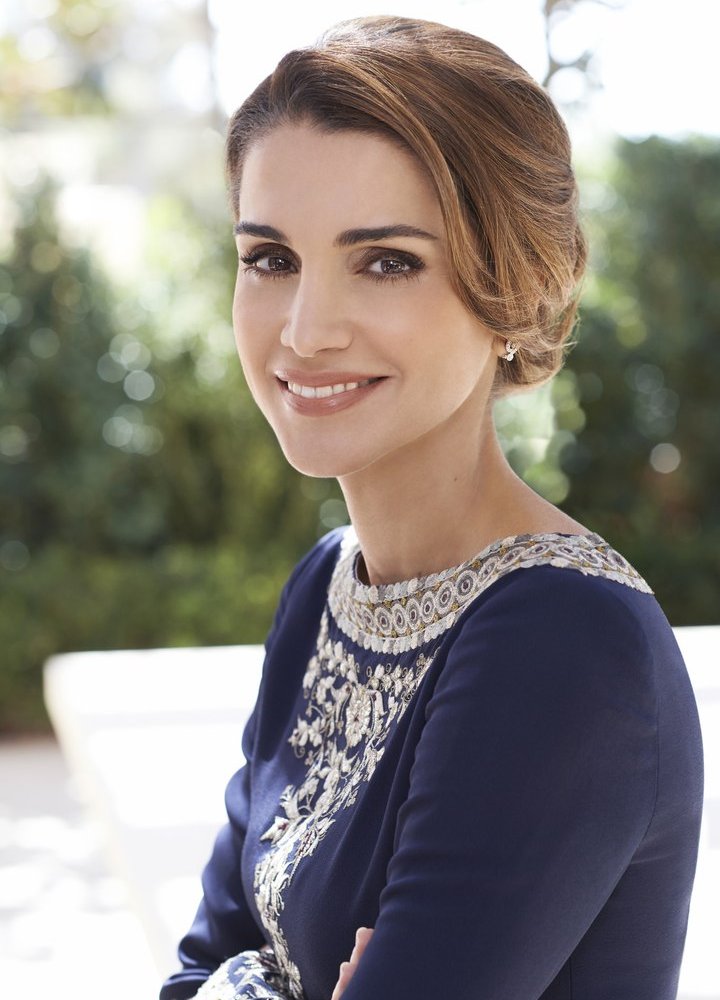Queen Rania of Jordan is not just a royal figure; she is a symbol of hope and progress in the Arab world. As the wife of King Abdullah II, she has dedicated her life to advocating for education, women's rights, and social reform. With her charismatic personality and commitment to change, Queen Rania has become a role model for many. In this article, we will explore her life, achievements, and the impact she has made both nationally and internationally.
Born Rania Al-Yassin on August 31, 1970, in Kuwait, Queen Rania's journey to the throne is as inspiring as her reign. She holds a degree in Business Administration from the American University in Cairo and worked in various sectors before marrying the then-Prince Abdullah in 1993. Her background has equipped her with the skills necessary to navigate the complexities of royal duties and public service.
As a queen, Rania has leveraged her position to promote critical issues, making her an influential figure in modern society. From championing educational reform to advocating for children's rights, she has shown that royalty can play a pivotal role in addressing societal challenges. Let's delve deeper into her biography, achievements, and the legacy she is building for future generations.
Table of Contents
- Biography of Queen Rania
- Early Life and Education
- Marriage and Family
- Queen Rania's Social Initiatives
- Advocacy for Education
- Promotion of Women’s Rights
- International Recognition
- Conclusion
Biography of Queen Rania
| Name | Queen Rania Al Abdullah |
|---|---|
| Date of Birth | August 31, 1970 |
| Place of Birth | Kuwait City, Kuwait |
| Title | Queen of Jordan |
| Spouse | King Abdullah II of Jordan |
| Children | Four (Crown Prince Hussein, Princess Iman, Princess Salma, Prince Hashem) |
Early Life and Education
Queen Rania was born to a Palestinian family. Her father, Faisal Al-Yassin, was a physician, and her mother, Ilham, was a homemaker. After the Gulf War in 1990, her family moved to Amman, Jordan, where Rania completed her schooling. She later pursued a degree in Business Administration at the American University in Cairo, graduating in 1991.
Her education provided her with a solid foundation in leadership, communication, and management. This background would later influence her approach to her royal duties and her commitment to social issues.
Marriage and Family
Rania met Prince Abdullah in the early 1990s, and they married on June 10, 1993. Together, they have four children: Crown Prince Hussein, Princess Iman, Princess Salma, and Prince Hashem. Rania has often spoken about the importance of family values and education in raising her children, ensuring they understand their roles as future leaders of Jordan.
The couple's public appearances often showcase their strong partnership, reflecting a modern royal family committed to their country and its people.
Queen Rania's Social Initiatives
Throughout her reign, Queen Rania has launched several initiatives aimed at improving the lives of Jordanians. Some of her notable projects include:
- Rania Foundation: Established to promote educational advancement and innovation in Jordan.
- Jordan River Foundation: Focused on community development and social support for vulnerable populations.
- Queen Rania Center for Entrepreneurship: Encouraging youth entrepreneurship and job creation.
Advocacy for Education
Queen Rania is a staunch advocate for education, believing it to be a fundamental right for all children. She has launched numerous campaigns aimed at improving educational access and quality in Jordan. Her efforts have resulted in the following:
- Increased funding for public schools.
- Introduction of innovative teaching methods.
- Support for marginalized communities to access education.
Her initiatives have garnered international attention, positioning her as a leading figure in global education advocacy.
Promotion of Women’s Rights
Queen Rania has also been a powerful voice for women's rights in Jordan and the broader Middle East. She emphasizes the importance of empowering women as key contributors to society. Her contributions include:
- Supporting legislation to enhance women's rights and protections.
- Promoting female participation in the workforce and public life.
- Raising awareness about gender-based violence and discrimination.
International Recognition
Queen Rania's work has not gone unnoticed on the global stage. She has received numerous awards and honors, including:
- The Arab Woman Award for her contributions to women's empowerment.
- The World Economic Forum's Crystal Award for her commitment to improving education.
- Recognition from various international organizations for her humanitarian efforts.
Her influence extends beyond Jordan, and she is often invited to speak at international forums on issues related to education and women's rights.
Conclusion
Queen Rania of Jordan embodies the spirit of modern monarchy, using her platform to effect positive change in society. Her dedication to education, women's rights, and social reform has made a lasting impact on Jordan and the world. As she continues to advocate for these vital issues, she inspires countless individuals to join her mission for a better future. We invite you to engage with this article by leaving comments, sharing your thoughts, or exploring more content on our site.
In summary, Queen Rania's life and work exemplify the principles of E-E-A-T (Expertise, Authoritativeness, Trustworthiness) and serve as a reminder of the potential of royal influence in driving societal progress. Her journey is a testament to the power of education and advocacy in shaping a better world.
Thank you for reading! We hope to see you back here soon for more insightful articles.




